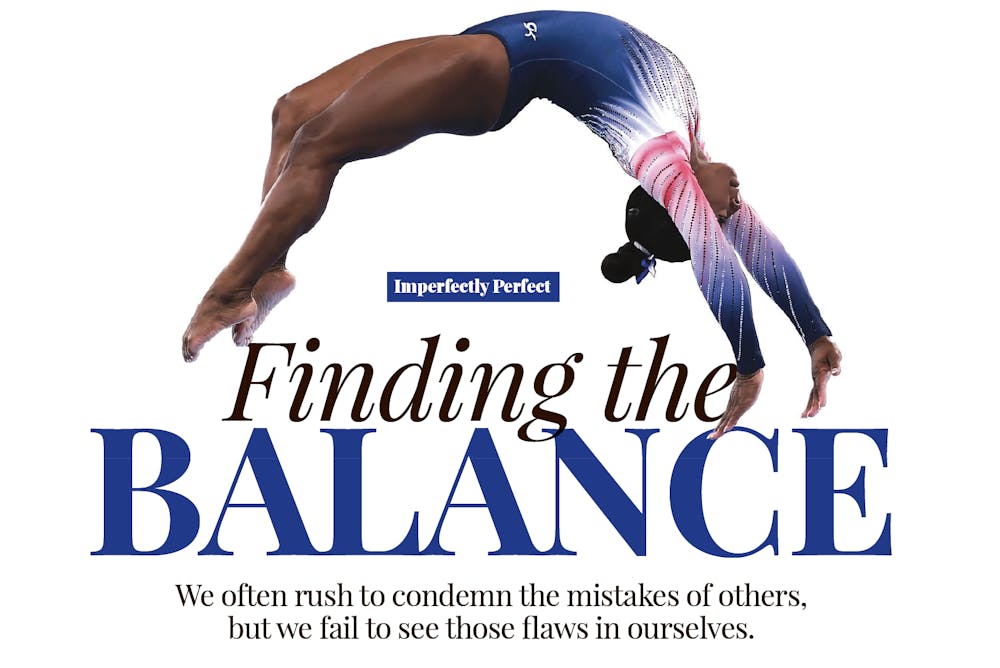KwaTashea Marfo is a freshman public relations major and writes “Imperfectly Perfect” for The Daily News. Her views do not necessarily reflect those of the newspaper.
I’ve always tried to defy the stereotype that was placed on me at birth.
At a very young age, I was told my name was “too ghetto” or I would just become another statistic for the African American community by dropping out of high school due to teen pregnancy while becoming dependent on government assistance. Despite those stereotypes, I successfully graduated high school with a 4.2 GPA.
However, when people inadvertently tried to place me in a box without getting to know me first, adverse mental health consequences developed and continue to plague me. The way people unconsciously projected their fears upon me internally pushed me toward a devastating loophole of seeking validation from others.
Likewise, as celebrities grow in fame and influence, it becomes increasingly difficult to please their audiences under any circumstances. Take Simone Biles, for example. Biles — a fierce, strong African American gymnast who continues to set precedents for future generations of gymnasts — received backlash this past summer after opting out of five of the six finals in the Tokyo Olympics to prioritize her mental health.
The intent to meet the public’s expectations of staying to perform in the Olympics could have been dangerous for Biles. However, she was willing to own up to her downfalls and proudly acknowledged that she was not in the best mindspace to continue competing.
While Biles and I are nowhere near the same level of eminence, I know how it feels to carry the weight of the world’s expectations on your shoulders, trying to prove yourself worthy of others. It is both emotionally and physically draining.
My father is from Ghana, West Africa, and while he had access to an education as a child, he did not take it seriously, which caused several difficulties later in life. When he came to the United States to start a family, he wanted to ensure his family had all of the necessary tools to obtain a good education. However, in doing so, he unconsciously projected his fears of not taking his education seriously onto me.
While I know my father had good intentions, he held high standards. No matter how well I thought I did with my studies, it was never good enough for my father’s approval. Although I wanted to make my father proud, I had to carve out space for myself to grow and learn that it is OK for me to live by my own standards instead of trying to please others all the time. In doing so, I enabled myself to establish a healthy balance between my own values and the expectations of others. As a result of that shift in thinking, I’m more understanding of Biles’ decision to prioritize her mental health.
It’s OK for Biles and I — or anyone for that matter — to struggle with societal expectations because the pressure at times can be overwhelming. Rather than surrendering to the expectations of others, one should let their standards surpass societal expectations. In doing so, we utilize our voice as our most powerful asset above others, which will contribute to the acknowledgment of our limitations and boundaries.
If we're being honest with ourselves, why is the topic of mental health so controversial? Biles is our latest victim of the superiority mindset we have ingrained into our everyday lives — a mindset that normalizes the act of self-sacrifice inferring you are better than others. She received backlash for acknowledging she’s not perfect and cannot always respond to the external pressures of the spotlight in a healthy way.
To me, her actions were comforting considering that as a prominent figure, she was willing to normalize the concept of dealing with the aftermath of taking much more than she could handle. As a young African American woman, I value representation on issues such as these because they are important.
If I had an idol like her growing up as a child, maybe I would have had better coping mechanisms when the pressure mounted on me. I would have known I did not always have to maintain the image of being a perfectionist, and maybe I would even be more comfortable asking for help when I feel overwhelmed.
We have become accustomed to holding celebrities to high standards, as if they are not humans themselves. We have all heard of the phrases “everyone makes mistakes” or “I’m only human,” yet people often condemn celebrities for their mistakes. It seems almost as if we want celebrities to make up for their downfalls because they’re so central to our everyday lives, but we disregard it when we make similar mistakes just to validate ourselves and feel superior to those around us.
We must stop holding others on such a high pedestal and refrain from criticizing their actions, as we at times cannot hold ourselves to the same standards. When we infer that we are self-righteous and don’t hold ourselves accountable to our own flaws, we are depriving ourselves from acknowledging and learning from our mistakes, enabling us to fall into a mindset of superiority.
As cliche as it sounds, we are all the same — imperfectly perfect human beings who are bound to make mistakes, and that includes superstars like Biles. It's our responsibility to treat individuals with understanding.
Contact KwaTashea Marfo with comments at kwatashea.marfo@bsu.edu or on Twitter @mkwatashea.




